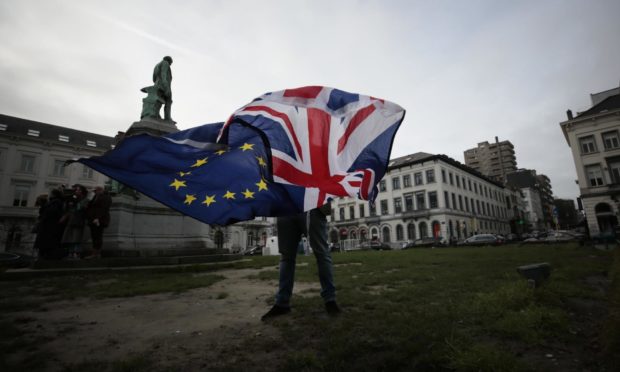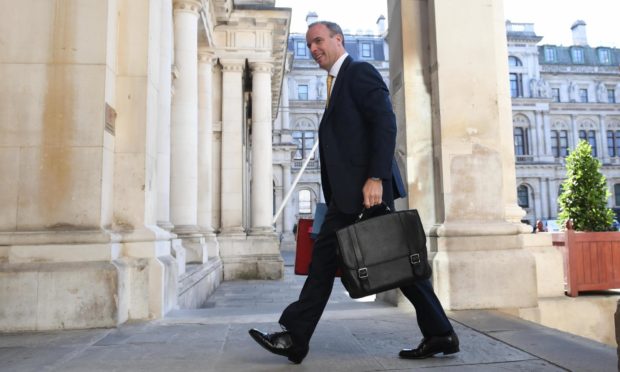The SNP has described increased Brexit-related red tape as an “unmitigated disaster” with Scottish companies among hundreds that have rushed to establish operations in the EU since January 1, taking valuable jobs with them.
Livingston-based Snag Tights is one of the Scottish businesses that’s already making plans to move the bulk of its export operations to the continent.
The company, which employs 73 people in Scotland, will now hire 100-120 more staff in the Netherlands to meet demand from EU orders.
In January it was revealed that the Department for International Trade was advising small businesses to launch EU operations as a way to get around the increased bureaucracy involved in exporting to the 27-nation bloc.

Snag Tights’ CEO Brie Reid, who started the company less than three years ago, says the shift in locations has been in the pipeline since last summer, but with more than half of its orders being sent overseas, primarily to the EU, a new facility was needed to keep up with the high demand.
“The whole reason we did it is because Brexit is this much of a mess. We did not think that Brexit would limit our chances, the way that it was managed from a business perspective was extremely poor.
“It was really difficult for us because we had no idea if there was going to be a trade deal. In the end, we had to spread our wings and have an operation in the Netherlands as well as one in the UK.”
The new facility in the Netherlands is to create scores of new jobs, considerably more than the number of jobs available at the company’s existing Scottish operations.
“The thing that upsets me most is that we are going to create about 100-120 jobs this year in the Netherlands,” says Ms Reid.
“I would rather those jobs be in Scotland and that annoys me. They could have been in Scotland if all of this stuff (Brexit) had been sorted earlier”.
What we’re trying to do is support businesses as best we can.”
Foreign Secretary Dominic Raab
The UK government claims that initial “teething problems” with the new export rules have “to a large extent been resolved”.
Speaking recently, Foreign Secretary Dominic Raab told the BBC’s Andrew Marr that there were other opportunities for British companies to export to the rest of the world, and that the government was trying to support businesses facing difficulties, by offering advice and guidance.
“But we have also been clear that there are changes that come with exiting the transition period, and what we’re trying to do is support businesses as best we can to manage those,” he said.
The Scottish National Party has hit out in strong terms about the amount of extra bureaucracy and costs now facing companies which want to export to the EU.
“Brexit red tape has been an unmitigated disaster for Scottish businesses and it’s clear that there is no end in sight with exports to EU reportedly down by 68% and just 10,000 of 50,000 customs agents in place,” says Stephen Flynn MP.
“No business in Scotland should have to face the additional costs of setting up in the EU to try and mitigate the mistakes of this UK Government when there is a perfectly straightforward alternative approach available,” the Aberdeen South MP adds.
Close links to the continent
Back at the Snags Tights office in Livingston, CEO Brie Reid says that although the company is moving most of its operations to a base in the EU, she’s thankful that no jobs will be lost among their Scottish workforce.
They make getting a bank account super-easy, everybody speaks English and setting up the company is really easy.”
Brie Reid
“If we weren’t going at this pace then there would have been (job losses) but we’ve managed to sustain all of our employees in Scotland. But we’re very lucky.”
Ms Reid says that there are various reasons for choosing the Netherlands as the company’s new location including good connections to other parts of Europe, including Germany, one of their strongest sales markets.
“They make getting a bank account super-easy, everybody speaks English and setting up the company is really easy,” she explains.
According to the Netherlands Foreign Investment Agency, more than 500 companies have started business operations in the country since the start of January to maintain easy access to the EU market – most of those companies arriving from the UK.

